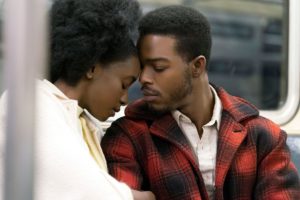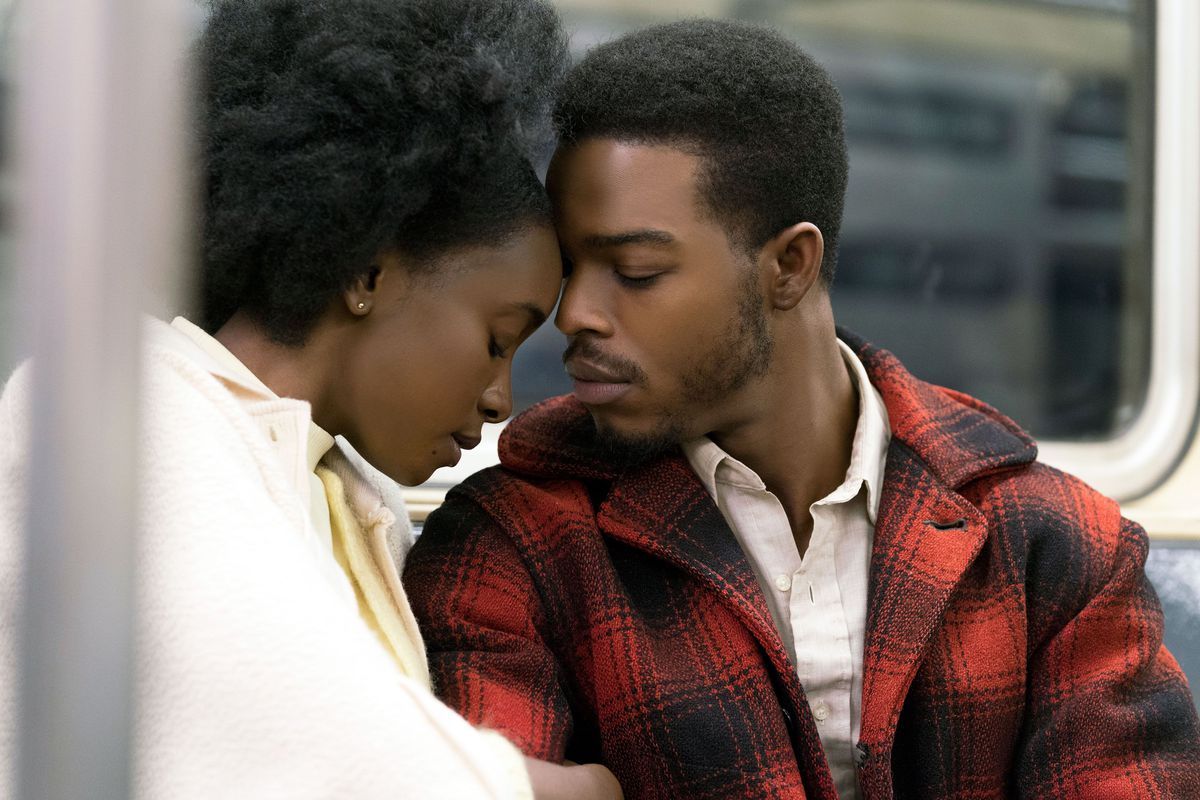Interviews About My #1 Film of 2018, If Beale Street Could Talk
Posted on January 7, 2019 at 8:00 am

My interview with Ms. Layne was for the Alliance of Women Film Journalists. She spoke about the support her character gets from her strong, devoted family.
The love in that family is just so, so powerful. We see the beauty of having those people to lean into and having those people around that are nurturing you and nurturing your growth. Tish has some growing up to do. Her family encourages that but it’s not all, “You’ve got to get over this.” It wasn’t that type of energy. It’s just like, “Hey, this is a situation that you’re in but really we’re all in it together,” and I think that was the beauty of the family dynamic in this film.
And I spoke to Barry Jenkins for rogerebert.com. He described the one scene where he augmented Baldwin’s story.
Another one of my favorite scenes is the one where they’re in the loft with the young landlord after so many rejections. It is so delicate and charming.
The character was in the book but it’s one of the few places in the translation that I’ll say I felt it didn’t go just far enough for me and so as I was walking around the space I just had this thought in my head like, “How in the hell could you possibly see a way to turn this into a home?” Then I realized, “Oh, but what says love and faith more than a lover saying, ‘I promise I can do this’ and you say ‘Okay, yes I believe you,’” So that’s when we added this whole thing of how we’re going to make this into a home and then him showing where he’s going to put all these things and then I was like, “Oh, it feels kind of cute let’s just go all the way with this pantomiming with the fridge,” and when we did it, there was something so lovely about watching Dave Franco and Stephan James perform this kind of joke in a certain way which was rooted in love and faith that when we got to the roof it also seemed like, “Okay, and now these characters feel connected. How can we take it one step further?”
This idea of mothers in the film is so important. Tish has a mother and she is pregnant, Fonny has a mother, Victoria Rogers, the woman who’s been sexually assaulted, she’s pregnant. She’s not showing but she’s pregnant. It’s all this idea of mothers. I thought, “Oh, here is something that I can see uniting these characters,” and that’s when we gave Dave Franco the line, “I’m just my mother’s son.” Sometimes it’s that idea that makes the difference between us and them; not black and white but people who have been loved and the people who haven’t.
This was adapted with I think much respect and deference to Mr. Baldwin, but that was one of the places where I’m really proud of how I was able to fuse my voice and his.



